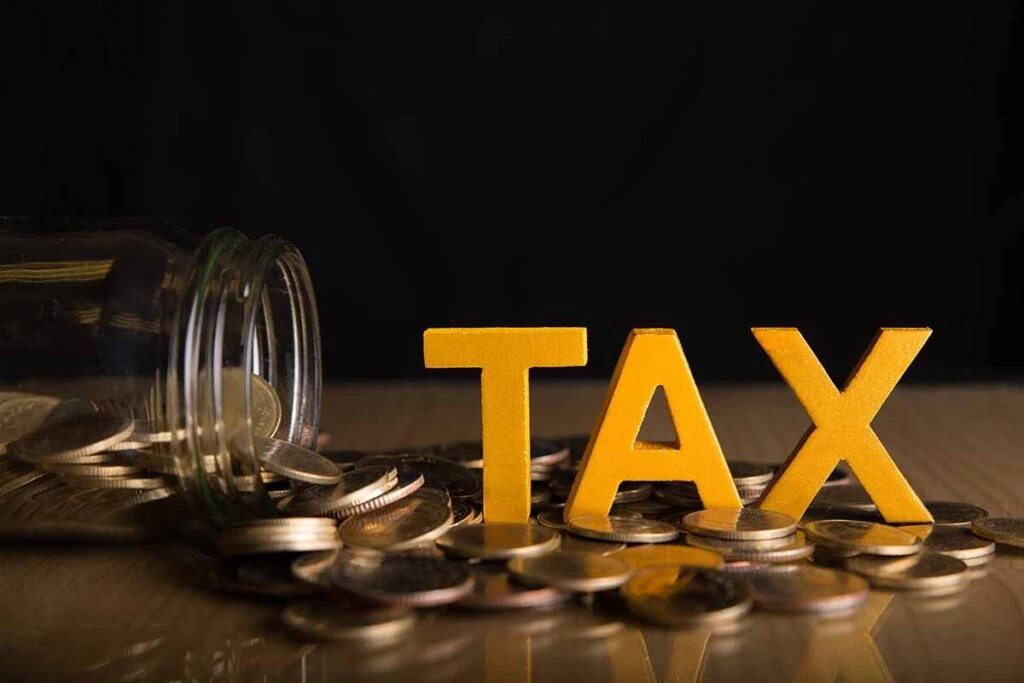Tax Consequences of Debt Settlements

What to Expect When You Settle Debts for Less Than You Owe
If you’re struggling to pay your debts, a settlement offer seems like a cause for celebration, and it can be. But unfortunately, most debt settlements come with tax consequences. Generally, if you have $600 or more in canceled debt, you will need to report the forgiven debt as income and pay tax on it.
This guide provides an overview of what to expect when you save money through a debt settlement. It also covers a lot of the FAQs people have about taxes and debt forgiveness. Keep reading for answers to these questions:
- How much tax do you pay on settled debt?
- What is a 1099-c?
- What is the tax rate for a settled debt?
- How do I know if I owe taxes on a forgiven debt?
- How can I avoid paying taxes on debt settlement?
- Are there taxes when you work with a debt relief company?
- Are debt settlement fees tax deductible?
What Is a Debt Settlement?
A debt settlement is when a creditor agrees to let you pay off your bill for less than you owe. For example, imagine that you owe $5,000 on a credit card, and the creditor lets you pay off the balance for $3,000. That is a debt settlement because the creditor wrote $2,000 off your bill.
What Are the Tax Consequences of Debt Settlement?
There are no direct taxes on a debt settlement, but if you save $600 or more, you will have to report the savings as income. To continue with the above example, the $2,000 you saved on that credit card debt is taxable income. You report it on your tax return and pay taxes based on your situation.
How Much Is the Debt Settlement Tax?
Debt settlement taxes vary based on your income tax rates. For instance, if you’re a single person with less than $12,950 in income, you don’t pay any income tax. Imagine that you earn $8,000 from your job and save $2,000 in canceled debt. Your total income is $10,000, and your tax bill is nothing.
Now, let’s say that you earned $12,950 at your job. Those funds are not taxed, but your income over that threshold is taxed at a rate of 10%. As a result, your $2,000 in forgiven debt will lead to a $200 tax bill.
The maximum tax rate on debt settlement is 37%. This is the income tax in the highest tax bracket. As a single person, you only get into this tax bracket if you have over $539,900 in taxable income. So, let’s say that you have $600,000 in taxable income and you have $50,000 in forgiven debt on top of that amount. That $50,000 will be taxed at 37% so your debt settlement taxes will be $18,500.
How Do I Know If I Owe Taxes on a Debt Settlement?
If you save $600 or more, the creditor who reduced your debt will send you a 1099 form to report your savings. You should receive this form by February 1st of the year following the year when you received the settlement.
For instance, if you settle a debt in October 2022, you should receive a 1099 in January 2023. If you settle a debt in January 2023, you will receive a 1099 the following January in 2024.
Then, you will owe taxes unless your income is under the taxable threshold as explained above or the debt qualifies for an exemption.
What Is Form 1099-C?
Form 1099-C (Cancellation of Debt) is a form that a lender/creditor issues if you save money on a consumer debt. In most cases, if you receive a 1099-C, you need to report the details on your tax return. Note that the IRS will also receive a copy of the 1099, so the agency will know if you forget to report the 1099.
How Do I Report the Cancellation of Debt on My Tax Return?
If the canceled debt was personal, you should report it under the additional income section of Form 1040 (Individual Income Tax Return). Report canceled business debts on the appropriate schedule based on how you report your business income.
For instance, if you file a Schedule C, you will include the canceled debt with the rest of the income from the 1099’s you receive for your business. If you file an 1120 (Corporate Income Tax Return), you will report the canceled debt on Line 10 (Other Income).
Can I Avoid Paying Taxes on a Debt Settlement?
If you save less than $600 on a debt settlement, you won’t have to pay taxes on it. If you’re negotiating with a creditor and your savings are around the $600 mark, ask them to cancel $599 in debt. Then, you’ll have the most amount canceled, without incurring a tax bill.
You can also avoid paying taxes on a debt settlement if your debt meets the rules for exceptions or exclusions.
Exceptions to the Cancellation of Debt Income
There are several types of debt that don’t count as income if they are canceled. They include the following:
- Amounts canceled as gifts, bequests, or inheritances. For instance, say that you owe $20,000 to your parents. They decide to just cancel the debt as a gift. That won’t be considered income.
- Qualified student loans canceled if you work in a certain profession. For instance, if you are in a program that cancels your student loan debt in exchange for working in a rural school district for a certain number of years, the canceled debt doesn’t count as income.
- Qualified educational loans canceled for working in healthcare settings.
- Amounts of canceled debt that would be deductible if a cash-basis taxpayer paid it.
- Qualified purchase price reductions given by a seller to a buyer of a property.
- Any amounts discharged from certain federal, privarte, or educational student loans.
Again, in the above situations, the canceled debt is not considered income. The person or business who canceled the debt doesn’t need to issue you any tax forms.
Canceled Debt Excluded From Gross Income
In other cases, the canceled debt is considered to be cancellation-of-debt income, but you don’t have to include it in your gross income. Here are the main examples:
- Debt that was canceled in a Chapter 11 bankruptcy case.
- Certain debts that were canceled due to your insolvency.
- Cancellation of qualified farm indebtedness.
- Cancellation of qualified real property business indebtedness.
- Cancellation of qualified principal residence indebtedness discharged and agreed to in writing before January 1, 2026.
For example, if you have a credit card debt eliminated in a Chapter 11 bankruptcy case, you don’t have to report it as income even if the creditor sent you a 1099-C. Similarly, if you had qualified farm debts canceled, you don’t have to report them as income even if the creditor sent you the form showing the canceled amount.
However, you can’t just ignore the 1099 forms. The IRS uses a matching system, and if it receives a 1099-C from a creditor but doesn’t see the amount reported on your form, it may send you a bill for the tax on the canceled debt. To ensure this doesn’t happen, you need to file Form 982 (Reduction of Tax Attributes Due to Discharge of Indebtedness) with your tax return.
Form 982 lets you report the amounts on your 1099-C forms. Then, it allows you to show why the canceled debts aren’t part of your taxable income.
Are Tax Debts Settled Through an Offer in Compromise Taxable?
If you settle taxes through an offer in compromise, the canceled debt is not taxable. This is an example of a debt that was settled because you were insolvent. The IRS does not require you to report these amounts as income or pay taxes on them.
Are Debts Canceled in Bankruptcy Taxable?
Generally, any debts that are canceled as part of bankruptcy are not taxable. However, if you cancel debts before you start the bankruptcy or outside of the bankruptcy proceedings, they are usually taxable.
Are There Tax Consequences of Working With a Debt Relief Company?
You may get a tax bill from working with a debt relief company, but only if the company helps you save more than $600 on an individual debt. Debt relief companies tell you that they can help you pay off your credit card bills for pennies on the dollar, but those savings can come with a big tax bill. Here’s an overview of the process.
How Do Debt Settlement Companies Work?
When you hire a debt relief company, they have you send them a monthly payment. They put that money in a savings account. In the meantime, they stop paying your credit cards. Fees and interest build up on your credit cards, which increases the balance. Over time, your creditors start to feel desperate.
Theoretically, when you ignore your creditors for long enough, they will offer you a settlement on the amount that you owe. The debt relief company uses the money from your savings account to pay the settlement. The debt relief company will repeat this process until all of your credit cards have been paid off.
What Happens When Debt Relief Companies Negotiate Settlements?
If you save $600 or more on the settlement, the credit card company will send you a 1099 form. Each creditor that offers you a settlement with savings over this amount will send you a form. When you file your taxes, you will have to report all of these amounts as income and pay tax accordingly.
How Much Do Debt Relief Companies Cost?
Let’s say that the debt relief company saved you $6,000 and none of the individual savings was less than $600. You will have to report the entire $6,000 as taxable income on your tax return. Depending on your tax bracket, this can be anywhere from a $600 to a $2200 tax bill.
At the same time, you will also have to pay the settlement amounts plus the debt relief company’s fees. Ultimately, this may mean that you end up paying more than you would if you had just paid off your credit cards on your own. But you need to crunch the numbers to figure out the most cost-effective option in your situation.
Are the Debt Settlement Fees Tax Deductible?

Generally, debt settlement fees are a personal expense so they are not deductible. However, if you have debts for your business and you pay someone to help you settle them, those payments may be considered business expenses. You may be able to classify them as deductible professional expenses on your business tax return.
What If I Can’t Pay All the Taxes I Owe on Settled Debt?
If you can’t afford to pay the taxes you owe from a debt settlement, you can apply for a payment plan to pay the taxes over time. Or you may be able to settle the tax bill for less than you owe through the offer-in-compromise program. If you can’t afford to pay anything, the IRS may agree to put your account on currently not collectible status.
Settling debt can lead to unintended consequences. Under the terms of the Fair Debt Collection Practices Act, the person who helps you settle your debt should typically tell you that the debt will be considered taxable income. But this doesn’t always happen. As a result, many taxpayers get a surprise tax bill when they settle debts.
Get Help From a Tax Lawyer
Need assistance regarding a forgiven debt that led to a tax bill? Our qualified team of professionals including our staff of tax attorneys will help get you the answers you need. Want help paying taxes from canceled debts? Then, contact us at the W Tax Group for a free consultation today.

